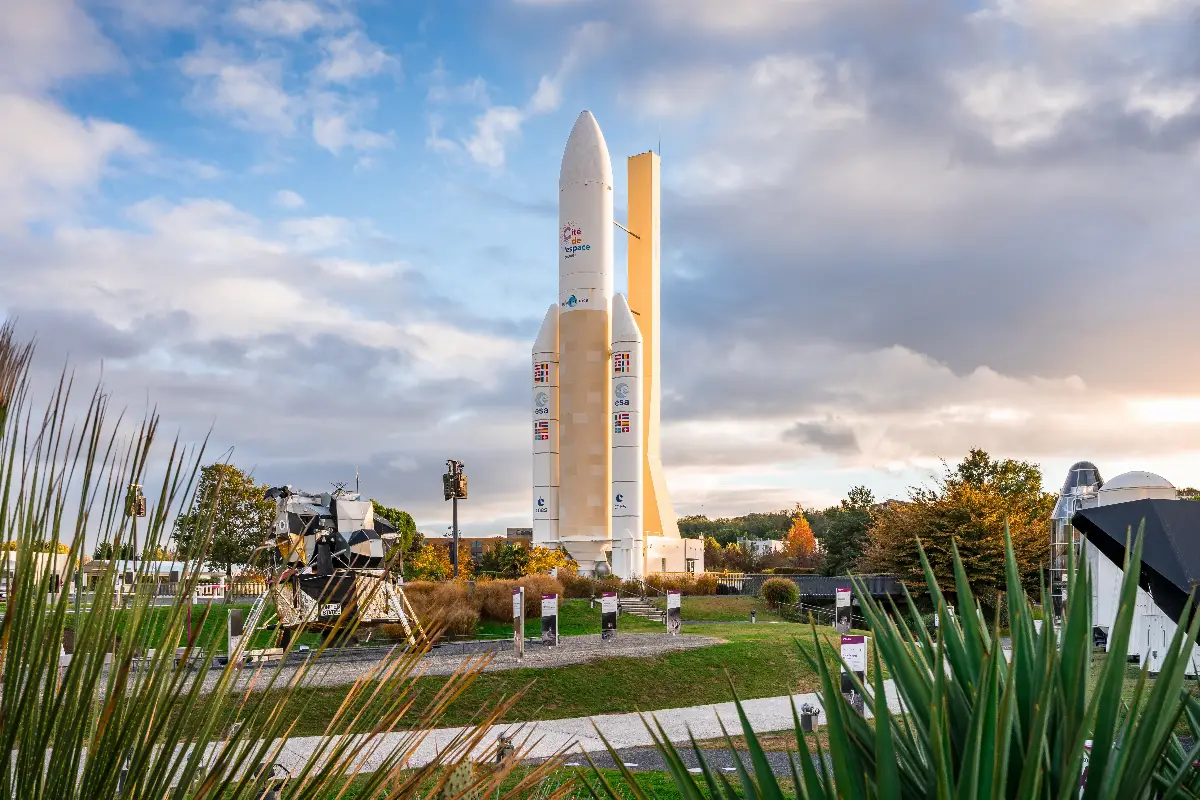
World Space Week (4-10 October) in Toulouse
The city that flies toward infinity and beyond

Since the first flight by Clément Ader, the Toulouse-born engineer who in 1890 managed to rise 50 metres above the ground aboard his Éole aircraft, Toulouse, capital of the French region of Occitanie, has written decisive chapters in the history of aviation first, and aerospace later.
As can be discovered in the city’s museums dedicated to aviation, such as L’Envol des Pionniers, which chronicles the epic of the Aéropostale pioneers (the carrier founded in 1927 that during the First World War mass-produced military aircraft, later converting them to civil transport, and a forerunner of Air France), and the Aeroscopia, which celebrates Airbus’s history and displays the first A-300 model—assembled in the late 1960s in Toulouse (which still hosts the production of the giants of the sky, including the more recent A-321). In short, a city at the cutting edge, where the aeronautical sector continues to beat strongly, attracting professionals, enthusiasts and the curious.
And this through-line, which links sky, research and engineering with Toulouse, has long since passed beyond the atmosphere to aim ever higher towards space: the Occitan capital is also the largest European hub for the aerospace industry, with an outstanding history in the sector and a gaze always fixed on the future.
The city hosts a large concentration of companies, research institutes, universities, incubators and infrastructure dedicated to the aerospace sector. It is no coincidence that Toulouse lies at the heart of what is today known as the “Aerospace Valley", the largest space cluster in Europe. In this fertile research and business area, which generates over 12,000 jobs across 400 companies (25% of European jobs in the space sector): from multinationals such as Airbus to a dense network of innovative SMEs, startups and scale-ups like the innovative Italian excellence Aiko (specialised in artificial intelligence software for the space industry), all fueling an ecosystem in continuous growth.
Among all these virtuous entities, a central role is played by CNES (the National Centre for Space Studies in Toulouse), the largest in Europe, which developed the SPOT satellite system, the first European Earth observation programme: the images produced by these satellites, increasingly precise and detailed, have enabled decisive progress in mapping, vegetation and land-use monitoring, as well as in studying the impacts of natural disasters.
Completing this panorama of excellence, Toulouse is also home to the most recent NATO Centre of Excellence, the twenty-ninth of the Alliance, which delves into space-related issues and trains specialists from member countries.
And if on one hand research and enterprise stand out, on the other Toulouse also distinguishes itself for its commitment to public science communication, always on the theme of space exploration: for those who dream of touching the stars, a must-visit on a city itinerary is undoubtedly the Cité de l’Espace. In this unique European site one can approach the mysteries of the universe in a way that is both playful and scientific, for example discovering the next challenges that space agencies are preparing for, exploring reproductions of the Martian terrain, admiring images captured by the James Webb Space Telescope (of which a full-size reproduction has been on display for several months) and experiencing the immersive LuneXplorer to feel firsthand the sensations of astronauts during a mission to the Moon.
In short, between history and innovation, Toulouse keeps its feet on the ground but its gaze fixed on space, preserving the wonder of exploration and throwing open the doors to what the future will bring.
AVIONEWS - World Aeronautical Press Agency